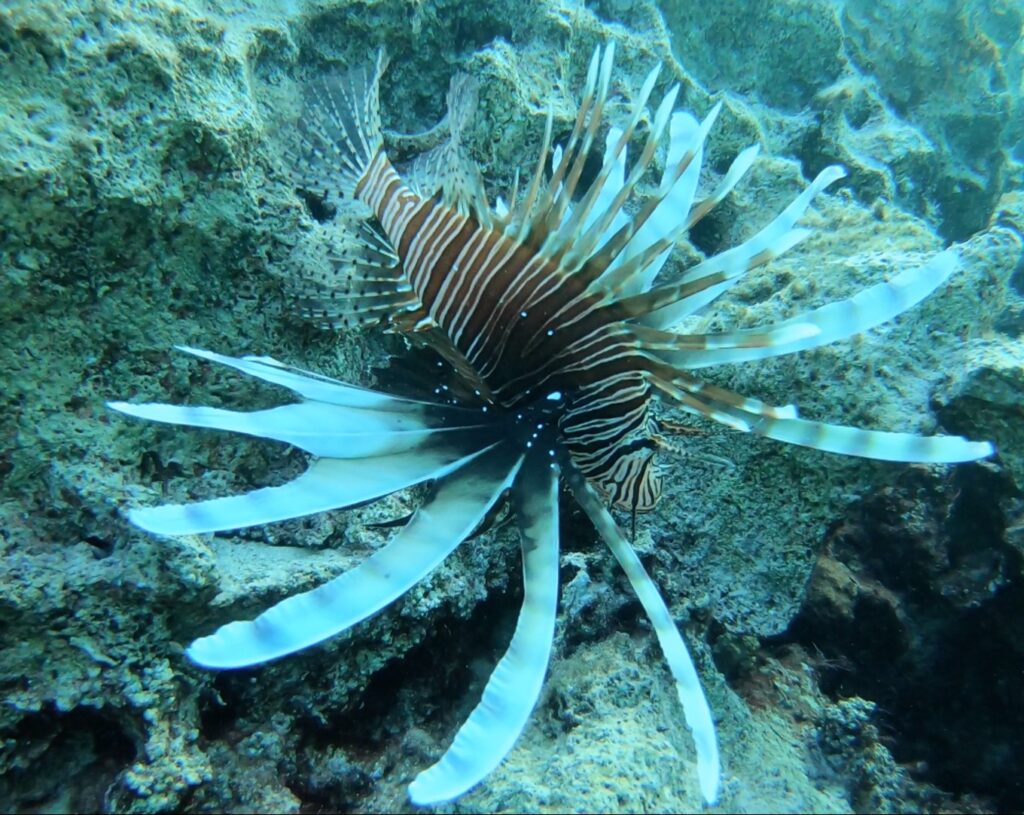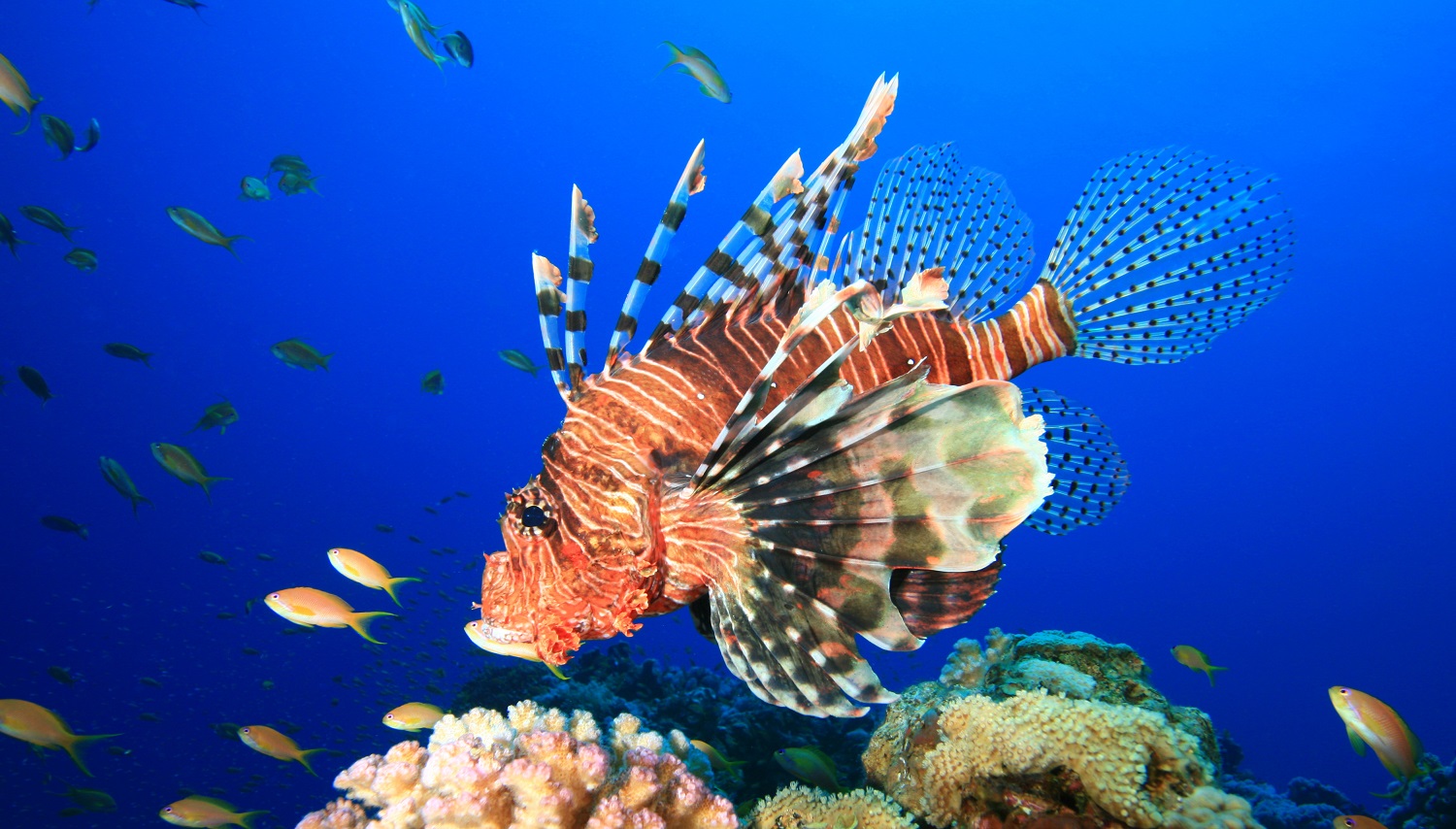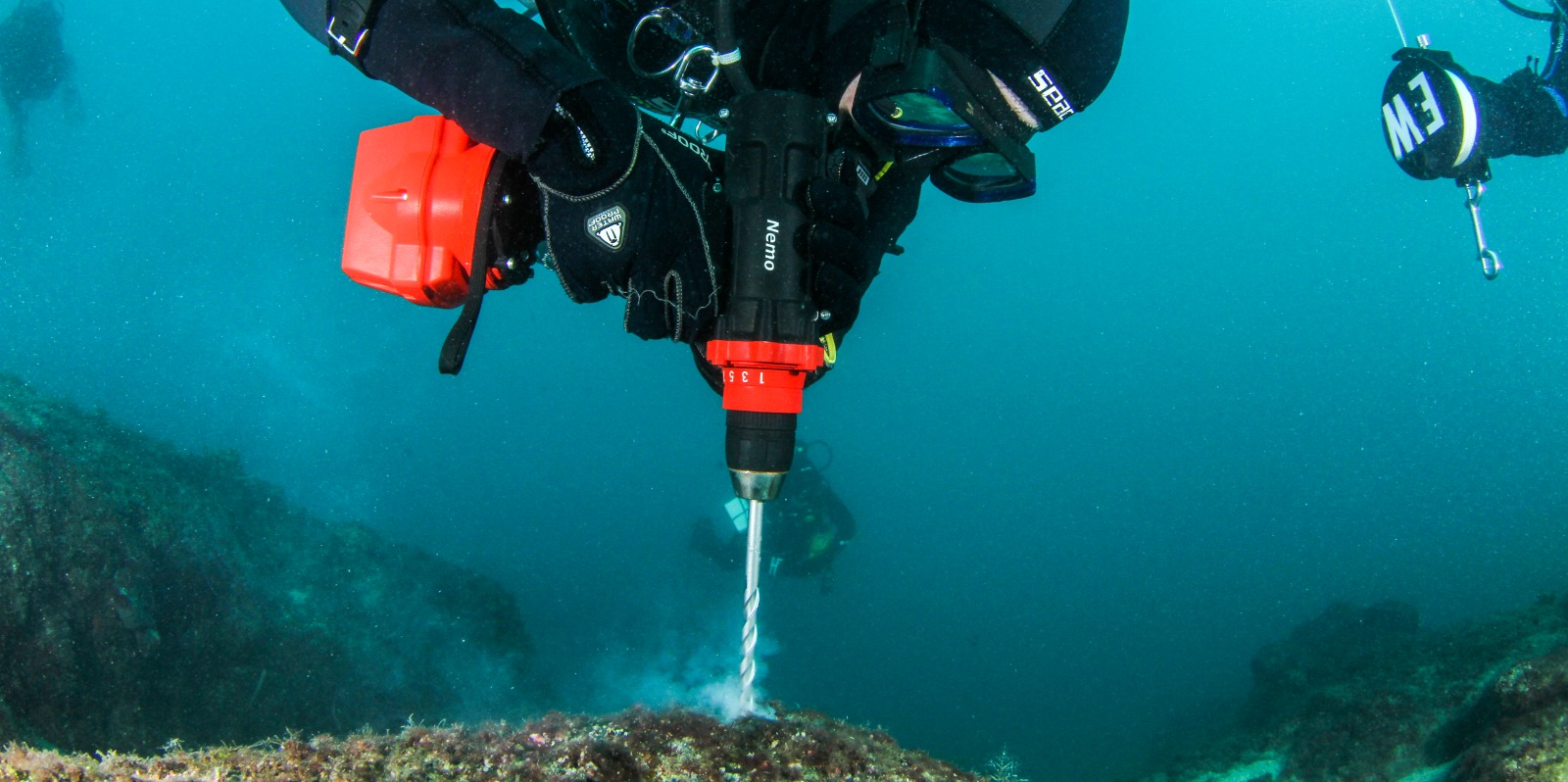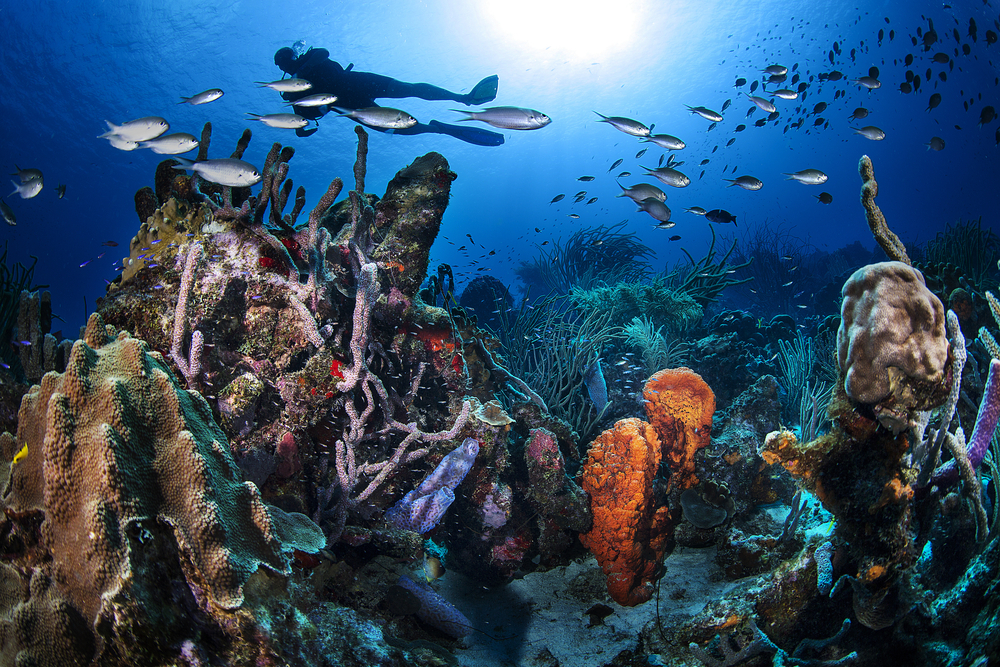For her internship, Inge Franse (24, master’s student in Forest and Nature Conservation) is investigating why lionfish swim near each other without interacting with each other. She is doing so with PhD student Davide Bottacini (Behavioral Ecology), who is working on a larger study of the invasive fish species.
‘Davide is looking at why this fish is so effective at reproducing and catching other fish,’ explains Franse. ‘He is looking explicitly at the lionfish’s behaviour. I myself have a small project within that research, looking at why lionfish sometimes sit together in a group without seeming to interact with each other. Not positively, because they don’t help each other, but not negatively either, because they don’t fight either. We found that striking, so we want to find out how it is.’
To do so, Franse and Bottacini went diving twice a day at a remote rock underwater where several lionfish resided. They did so with Piotr Fromentin, a volunteer from France. ‘For two weeks we tracked all the individuals, so you know who is who, and see how the population moves around the rock. You can recognise each individual by their unique pattern, just like zebras.’
New housing

After those two weeks, Bottacini and Franse placed new structures near the rock. At some structures, they placed three lionfish they had captured elsewhere, at others they did not. They then watched how the original group of lionfish reacted to the new environment and the newcomers.
‘It seemed that many lionfish were curious about the new structures. The original rock was quite densely populated, as if there was some kind of housing crisis. Of the 40 lionfish on the original rock, about half seemed to think: do me one of those new-build houses. The other half stayed comfortably in their spots.’
Eat or be eaten

What caused this, Franse does not yet know. ‘When this trial is finished, we will dissect the fish to see whether they are males or females. Possibly it has something to do with that. Or with whether the fish are already able to reproduce or not. Or maybe small lionfish stay away from larger ones because they are afraid of being eaten.’
Whatever comes out, one thing Franse already knows is that she likes scientific diving. ‘The internship is very intensive, we are sometimes diving seven days a week several times a day. But I really enjoy diving and doing research. Like Davide, I hope to do a PhD in this direction after graduation.’
Effective hunters
PhD candidate Bottacini welcomes Franse’s contribution. ‘Most studies on lionfish are about how they got into the Mediterranean as an invasive species, where they are and how many there are. The aim of my project is to look more fundamentally at lionfish as effective hunters. With Inge’s project, we are pulling that wider and also looking at why there are often several lionfish near each other. Does this species of fish like the company of conspecifics after all? Or do they mostly like the same environments? That’s interesting, because they often sit near each other, but we never actually see social behaviour.’




 Photo Davide Bottacini
Photo Davide Bottacini 

